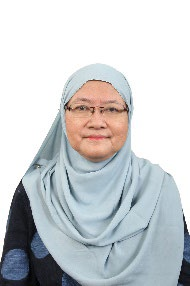| A. Prof. Chew Fong PengDepartment of Language & Literacy, Faculty of Education, University of Malaya Research Area: Language education, literature education, children’s literature in education Brief: Associate Professor Dr. Chew Fong Peng is the Centre for Research in Language Education (CRiLE) Chair, Faculty of Education, University of Malaya (UM), Malaysia. She teaches Malay Language Education, Chinese Language Education, and early childhood education programs. She has presented approximately 180 working papers in international and international seminars and conferences in Malaysia and foreign countries, published 9 books, 148 articles published in journals, 74 papers in conference proceedings, 45 chapters in books, 21 translated books including creative writings, 14 edited books, and edited creative writings. She is the book editor of Taylor & Francis, editor for Malaysian Year 4, 5, and 6 History textbooks, and Year 1 Arts and Music Education textbooks. Assoc. Prof. Dr. Chew has completed 31 research projects, 10 of which being the lead researcher. She won numerous medals in the academy and innovative expo, besides being listed in Marquis Who's Who in the World 2011, 2012, 2014, 2015, 2017, 2018, 2019, and 2020. Chew is an article reviewer for established international journals on the Web of Science and Scopus, such as Frontiers in Psychology, Frontiers in Education, Asia-Pacific Education Researcher, Asia Pacific Journal of Education, SAGE Open, Educational Research and Reviews (ERR), Pertanika: Journal of Social Sciences and Humanities, GEMA Online, etc. Associate Professor Dr. Chew is also a member of the editorial board of many national and international journals including the Journal of Contemporary Educational Research, Review of Educational Theory, GATR Global Journal for Business & Social Science Review, and Advisory of International Research and Development Center for Publication (IRDCP). She was invited as a visiting professor at Peking University, China from October 2011 to June 2012. Speech Title: Molding Integration through National Literature in Schools: How Far Does It Work? Abstract: In a multi-ethnic and multicultural country such as Malaysia, national integration is the fundamental pillar of harmony and stability. Therefore, themes of ethnic relations in Malaysia are always being highlighted in the national literature. This speech will focus on some research on national integration in the Malay literature, followed by a discussion on the related topic in the subject of the Literature Component (KOMSAS) in the Malay Language. However, the selected literary genre in KOMSAS rarely reflects the national integration themes, thus a study was conducted to investigate the extent to which KOMSAS teaching enhances the integration among the students. Based on Weiner’s theory (1965), the study employed the questionnaire survey method. The respondents consisted of 310 Secondary School Form Two students in Kuala Lumpur. Findings showed that the textbooks of KOMSAS do not reflect the multi-ethnic society in Malaysia. Furthermore, the teachers were struggling to stimulate the students' interests, consequently explaining the low interest of the latter in learning KOMSAS. Inferential analysis indicated significant differences in unity literature education based on the ethnicities [F (2, 307) = 34.573; p < 0.05] and SES [F (3, 306) = 5.109; p < 0.05]. In conclusion, Malay literature education plays a unique role in instilling unity among the students in the school setting. Therefore, teachers should come up with interesting teaching methods to cultivate the student’s interest in learning unity-themed literature and grant them a better understanding of other ethics to boost national integration. |
| Prof. Dr. Richard Peter BaileyUCSI University, Malaysia Brief introduction: Prof. Bailey is Deputy Dean, Head of Research, and Full Professor in the Faculty of Social Sciences and Liberal Arts at UCSI University in Malaysia. He is also Deputy Director of the Center of Research for Mental Health and Wellbeing, Kuala Lumpur. Richard has been Expert Advisor for UNESCO, the OECD, the International Olympic Committee, and Nike. He is an elected Fellow of the Royal Society of Arts in the UK, a Member of the Akademi Profesor Malaysia, a Member of the Malaysian Branch of the Royal Asiatic Society, and he was recently named an ‘Ikon Pendekar’ (Hall of Famer) for his contributions to Malaysian Cultural Arts. Stanford University’s list of the world’s top scientists rated him the leading sports scientist in Malaysia, in the top 0.3% in the World. Richard has worked as a school teacher, sports coach, teacher trainer, consultant, and researcher. He was a Professor in several Universities in the United Kingdom, before becoming head of research at an international sports NGO in Berlin, Germany. His research interests are diverse, including the philosophy of education, learning sciences, and sports sciences. Recent projects have examined myths about the brain and learning, inclusion in public health, and the history of Malaysian martial arts. He has authored or edited 32 books, and more than 250 scientific articles. Speech Title: Silat Warriors as Malay Cultural Heroes Abstract:The unprecedented success of the film Mat Kilau: Kebangkitan Pahlawan and ongoing discussions about the cultural significance of Hang Tuah and Hang Jebat suggest that Malay Silat warriors continue to be seen as heroic figures among many Malaysians. This article examines this idea by considering the phenomenon of warrior heroes, in general, and the Tuah/Jebat story, in particular. The perennial question of which of the Melakan warriors who fought to the death was right is discussed, concluding that the answer is much more ambiguous than traditionally presented. The whole notion of cultural heroes raises question |
 | Prof. Rogayah A RazakUCSI University, Malaysia Brief introduction:Rogayah A Razak is a Professor & Dean at the Faculty of Social Science & Liberal Arts, UCSI University, Malaysia. Her work in academia spans more than 35 years. She has vast experience working at public universities including Universiti Kebangsaan Malaysia (UKM) for 21 years. She is the founder of the Clinical Linguistics postgraduate program at UKM in 2007. Her areas of expertise include psycholinguistics, multilingualism, and clinical linguistics. She is the author of a local language assessment tool MPLAT and Malay LARSP, and has co-authored other tests such as Malay-BNT, Malay-HINT, Radner-UKM Malay Reading Charts for speech-language therapy and Optometry respectively. Her body of work in these areas are widely published in high impact journals. She has successfully bided international and national research grants from the Academy of Medical Science, UK, British Council, John Templeton Fund, Yale University and Ministry of Higher Studies, Malaysia. She is a recipient of the distinguished Fulbright Visiting Scholar Award. Speech Title: Psycholinguistic Studies on bilingual children in Malaysia: Implications for Education and Language Intervention Abstract:This presentation revolves around the psycholinguistic studies conducted on multilingual typically developing and atypically developing Chinese and Malay children in Malaysia. 3 studies are presented: 2 studies on morphosyntactic abilities of typically developing Malay and Chinese preschoolers based on a sentence repetition task, and the third study looks at Malay school-age children with developmental language disorders. We will briefly touch on the first standardized language assessment tool, the Malay Preschool Language Assessment Tool (MPLAT), a tool which could be used to assess/screen/diagnose multilingual children. A few factors are identified to contribute to the language abilities of these children: psycholinguistic factors such as age of acquisition, total use; multicultural nature |


